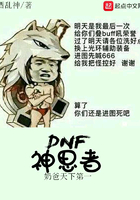Paddy's starched shirt and celluloid collar chafed, the blue suit was too hot, and the exotic Sydney seafood they had served with champagne at luncheon had not agreed with his mutton-inured digestion. And he had felt a fool, thought he looked a fool. Best though it was, his suit smacked of cheap tailoring and bucolic unfashionableness. They were not his kind of people, the bluff tweedy graziers, the lofty matrons, the toothy, horsy young women, the cream of what the Bulletin called "the squattocracy." For they were doing their best to forget the days in the last century when they had squatted on the land and taken vast tracts of it for their own, had it tacitly acknowledged as their own with federation and the arrival of home rule. They had become the most envied group of people on the continent, ran their own political party, sent their children to exclusive Sydney schools, hobnobbed with the visiting Prince of Wales. He, plain Paddy Cleary, was a workingman. He had absolutely nothing in common with these colonial aristocrats, who reminded him of his wife's family too much for comfort. So when he came into the presbytery lounge to find Frank, Meggie and Father Ralph relaxed around the fire and looking as if they had spent a wonderful, carefree day, it irritated him. He had missed Fee's genteel support unbearably and he still disliked his sister as much as he had back in his early childhood in Ireland. Then he noticed the sticking plaster over Frank's eye, the swollen face; it was a heaven-sent excuse. "And how do you think you're going to face your mother looking like that?" he yelled. "Not a day out of my sight and you're back at it again, picking fights with anyone who looks at you sideways!"
Startled, Father Ralph jumped to his feet with a soothing noise half-uttered; but Frank was quicker.
"I earned myself money with this!" he said very softly, pointing to the plaster. "Twenty pounds for a few minutes' work, better wages than Auntie Mary pays you and me combined in a month! I knocked out three good boxers and lasted the distance with a lightweight champion in Jimmy Sharman's tent this afternoon. And I earned myself twenty pounds. It may not fit in with your ideas of what I ought to do, but this afternoon I earned the respect of every man present!"
"A few tired, punch-drunk old has-beens at a country show, and you're full of it? Grow up, Frank! I know you can't grow any more in body, but you might make an effort for your mother's sake to grow in mind!" The whiteness of Frank's face! Like bleached bones.
It was the most terrible insult a man could offer him, and this was his father; he couldn't strike back. His breathing started coming from the bottom of his chest with the effort of keeping his hands by his sides. "No has-beens, Daddy. You know who Jimmy Sharman is as well as I do. And Jimmy Sharman himself said I had a terrific future as a boxer; he wants to take me into his troupe and train me. And he wants to pay me! I may not grow any bigger, but I'm big enough to lick any man ever born-and that goes for you, too, you stinking old he-goat!"
The inference behind the epithet was not lost on Paddy; he went as white as his son. "Don't you dare call me that!"
"What else are you? You're disgusting, you're worse than a ram in rut! Couldn't you leave her alone, couldn't you keep your hands off her?" "No, no, no!" Meggie screamed. Father Ralph's hands bit into her shoulders like claws and held her painfully against him. The tears poured down her face, she twisted to free herself frantically and vainly. "No, Daddy, no! Oh, Frank, please! Please, please!" she shrilled.
But the only one who heard her was Father Ralph. Frank and Paddy faced each other, the dislike and the fear, each for the other, admitted at last. The dam of mutual love for Fee was breached and the bitter rivalry for Fee acknowledged.
"I am her husband. It is by God's grace we are blessed with our children," said Paddy more calmly, fighting for control.
"You're no better than a ****ty old dog after any ***** you can stick your thing into!"
"And you're no better than the ****ty old dog who fathered you, whoever he was! Thank God I never had a hand in it!" shouted Paddy, and stopped. "Oh, dear Jesus!" His rage quit him like a howling wind, he sagged and shriveled and his hands plucked at his mouth as if to tear out the tongue which had uttered the unutterable. "I didn't mean it, I didn't mean it! 1 didn't mean it!" The moment the words were out Father Ralph let go of Meggie and grabbed Frank. He had Frank's right arm twisted behind him, his own left arm around Frank's neck, throttling him. And he was strong, the grip paralyzing; Frank fought to be free of him, then suddenly his resistance flagged and he shook his head in submission. Meggie had fallen to the floor and knelt there, weeping, her eyes going from her brother to her father in helpless, beseeching agony. She didn't understand what had happened, but she knew it meant she couldn't keep them both.
"You meant it," Frank croaked. "I must always have known it! I must always have known it." He tried to turn his head to Father Ralph. "Let me go, Father. I won't touch him; so help me God I won't."
"So help you God? God rot your souls, both of you! If you've ruined the child I'll kill you!" the priest roared, the only one angry now. "Do you realize I had to keep her here to listen to this, for fear if I took her away you'd kill each other while I was gone? I ought to have let you do it, you miserable, self-centered cretins!"
"It's all right, I'm going," Frank said in a strange, empty voice. "I'm going to join Jimmy Sharman's troupe, and I won't be back."
"You've got to come back!" Paddy whispered. "What can I tell your mother? You mean more to her than the rest of us put together. She'll never forgive me!"
"Tell her I went to join Jimmy Sharman because I want to be someone. It's the truth."
"What I said-it wasn't true, Frank."














